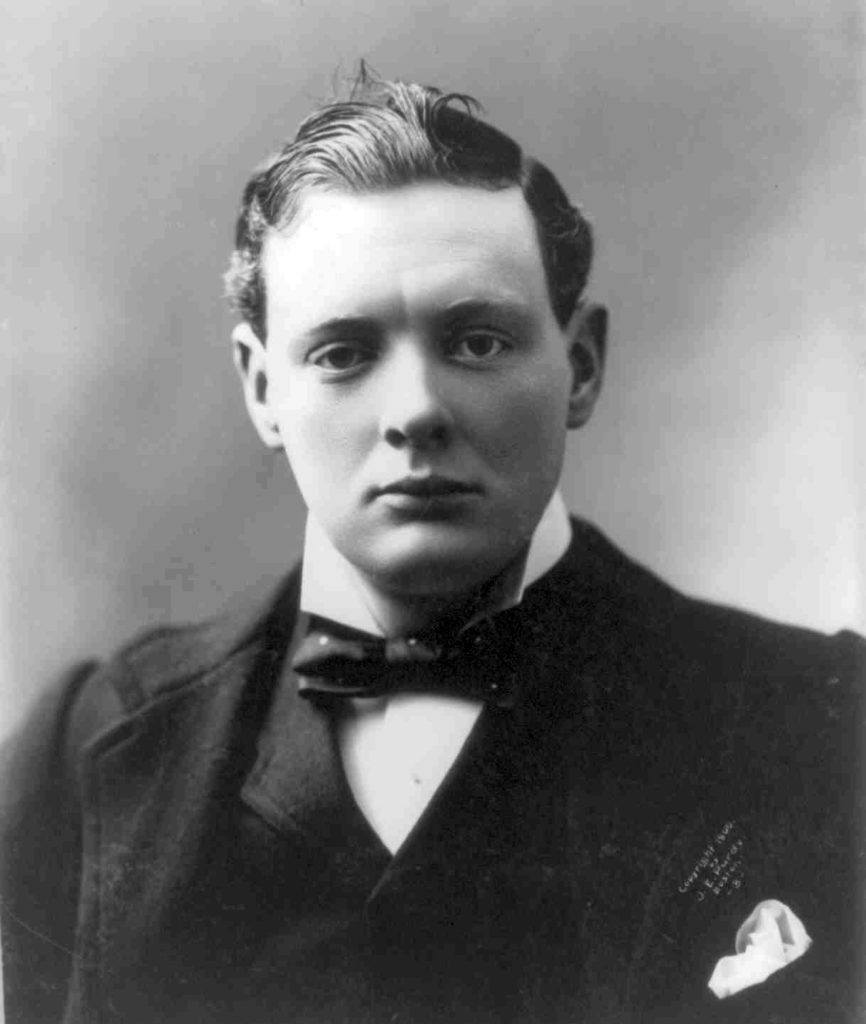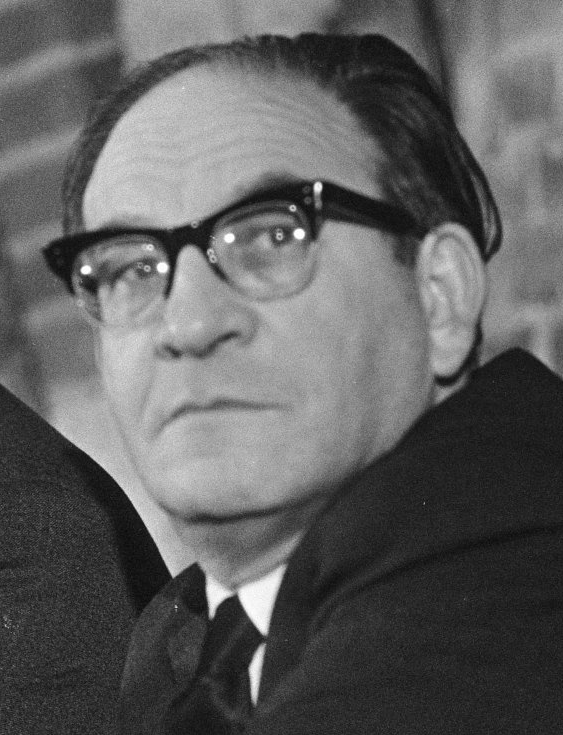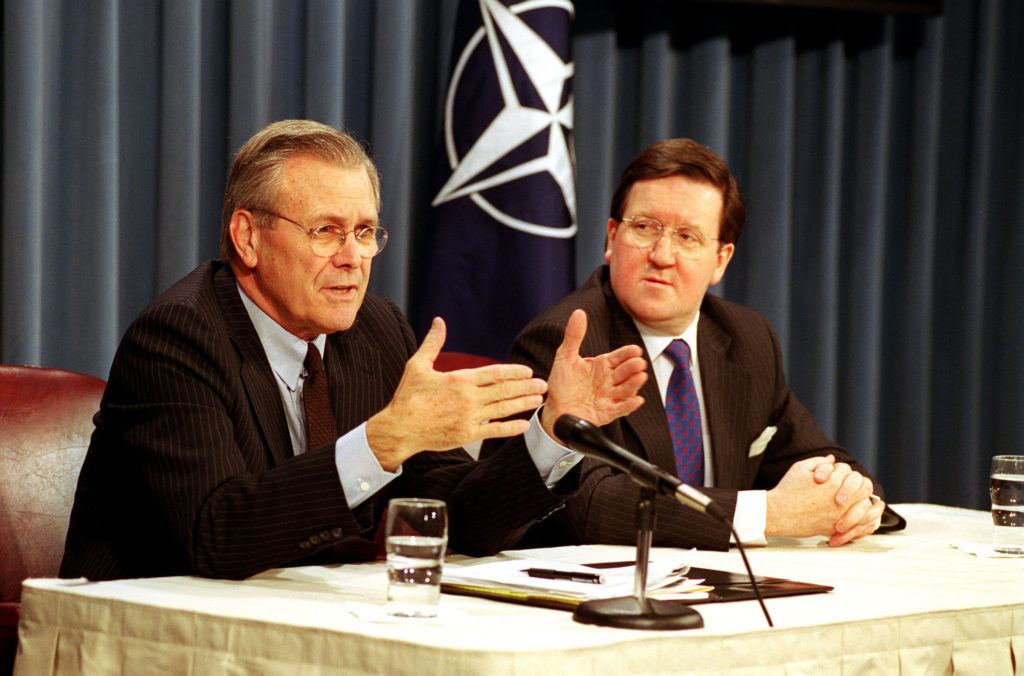Credit: David Mirzoeff/PA Wire/PA Images
This is the second part in a series exploring the British military. The first part ‘What is the Army for? You only know afterwards’ was published last week.
The day after Britain declared war on Germany in 1914, the Prime Minister, H H Asquith, made Field Marshal Lord Kitchener of Khartoum the Secretary of State for War (the Army). It was the first time a man in uniform had been appointed, and Kitchener was notoriously secretive and autocratic. Asquith called it “the hazardous experiment.”
It was made yet more hazardous because of the chaotic state of the War Office, all its experienced staff having left for France. To make matters even worse, Kitchener had never stepped foot inside the building. He knew nothing of how it was meant to work, nor did he appear to want to. He did things his own way. Advice was unnecessary.
But, at 64, he was certainly not disadvantaged by youth.
On the other side of Whitehall was the Admiralty, with its own Secretary of State – 39-year-old Winston Churchill. Asquith had appointed him in 1911 after a famous briefing at 10 Downing Street at which the Admiralty and the War Office gave entirely uncoordinated, even contradictory, advice in the event of war with Germany. Churchill was then Home Secretary and had been in the Cabinet since 1908. As Home Secretary, there was no reason for him to be at the meeting, but he was virtually the only member of the government who had seen active service. Before the meeting, which would determine British strategy in August 1914, Churchill submitted a paper assessing what the Germans would do in a war with France, and what the British response should be. He would prove far more percipient than the professional heads of the two services.

Age shall not necessarily weary them
Age itself is not the fundamental issue when it comes to strategic wisdom. Both Kitchener and Churchill were the men for the hour, though Churchill would leave the stage in 1915 before his hour was up, and Kitchener would considerably over-stay it – until his watery grave the following year.
Since 1964 the Admiralty and the War Office – and the Air Ministry, the child that the First World War begat – have been integrated, after a fashion, in the Ministry of Defence, with a single Secretary of State and junior ministers having tri-service responsibilities for procurement and personnel matters.
As Adam Smith avers in The Wealth of Nations:
“[T]he sovereign has only three duties to attend to; three duties of great importance, indeed, but plain and intelligible to common understandings: first, the duty of protecting the society from the violence and invasion of other independent societies…”
By that token, the Ministry of Defence stands key to the “system of natural liberty” about which Smith was writing. At the very least, the MoD’s huge – but inadequate – budget speaks of its importance; and its Secretary of State is the embodiment of that importance in Cabinet.
And in NATO, too, where Britain has consistently held the Europeans’ feet to the fire over defence spending.
In the Secretary of State for Defence, therefore, intellect, experience, character, judgement, application and standing are of the essence.
This is largely borne out by the record. Although no Defence Secretary has become prime minister, all have been men of consequence in their respective parties. Of the first eleven Secretaries of State since 1964 all but one had seen service, and most of them active service. Six of the first seven had fought in the Second World War. One of them, Fred Mulley (Labour), was five years a prisoner of war.
All were men of both experience and demonstrable intellect.

The one who had not served in uniform was Labour’s Roy Mason. In 1938, at the age of 14, he “went down the pit”, arguably a more dangerous occupation than being in uniform. At his colliery two years earlier, fifty-eight men had been killed in an underground explosion, and he himself was injured three times before leaving after the war to become a Trades Union official. By common consent Mason stands as one of the finest Defence Secretaries, not least for his gritty determination to confront the IRA at the height of the Northern Ireland “Troubles” (He went on to be Secretary of State for Northern Ireland). The former Sinn Fein leader, Martin McGuinness, said simply “He beat the sh*t out of us.”
Mason had experience: not directly military, but he had previously been Minister of Defence for Equipment. He most certainly had character, judgement, application and standing – and no one ever questioned his intellect, which was also attested to by a Trade Union Congress scholarship at the London School of Economics
Stick close to your desks and never go to sea
Since 1992, no Defence Secretary has had military experience. All have been men of standing within their respective parties, however, and several maintained an active engagement in Defence afterwards. George Robertson, Tony Blair’s first Defence Secretary, became Secretary General of NATO, and honorary colonel of the London Scottish (regiment). John Hutton, who was briefly at the MoD (2008-9), is a published military historian and Vice President of the Royal United Services Institute for Defence Studies. Malcolm Rifkind is a Senior Associate Fellow of the RUSI.

In HMS Pinafore, WS Gilbert poked fun at WH Smith (of the stationery family), who became First Lord of the Admiralty in 1877 and Secretary of State for War twice in the 1880s, in the character of “Sir Joseph Porter KCB”:
Stick close to your desks and never go to sea,
And you all may be rulers of the Queen’s Navee!
But it was only circumstance – two world wars and then National Service – that meant so many holders of ministerial office in the Twentieth Century previously wore uniform. However, no Defence Secretary has come to the job as young as does Gavin Williamson now, although Michael Portillo was just a few months older. And none save George Robertson was appointed without previous ministerial experience, though in Robertson’s case this was because Labour had been out of power for so long.
“I thought so little, they rewarded me…”1
On Williamson’s intellect, character, judgement, application and standing, given the slim evidence available, it is unreasonable to pronounce. The trouble is, he comes to the MoD at the most exigent of moments. Some would argue that for the MoD it is always the most exigent of moments, but there is at present a huge mismatch in spending requirements and actual resources. The MoD is, in fact, in the middle of a defence review that cannot speak its name.
Nor is the MoD in the best of shape. Neither the Chief of the Defence Staff nor the Vice Chief of the Defence Staff were first choices for the job, and the CDS has already announced his intention to quit – or rather, to take the rather more convivial job of Chairman of the NATO Military Committee. Gavin Williamson will have to master a notoriously difficult brief before he can even begin to handle the professional advice, let alone to judge it. Much of his first day in office was, it seems, spent in photo-opportunities at Waterloo Station with the Poppy Collection, which is hardly propitious. The MoD has a way of filling ministers’ time on the ceremonial.

In the famous song charting his rise from office boy to First Lord of the Admiralty, Sir Joseph Porter admits:
But when the breezes blow,
I generally go below,
And seek the seclusion that a cabin grants;
However, it is not breezes that blow in the MoD; the whole spending programme is about to be engulfed in a cyclone.
On the face of it, the appointment of Gavin Williamson, as Asquith said of Kitchener’s appointment in 1914, is indeed a hazardous experiment.







Join the discussion
Join like minded readers that support our journalism by becoming a paid subscriber
To join the discussion in the comments, become a paid subscriber.
Join like minded readers that support our journalism, read unlimited articles and enjoy other subscriber-only benefits.
Subscribe